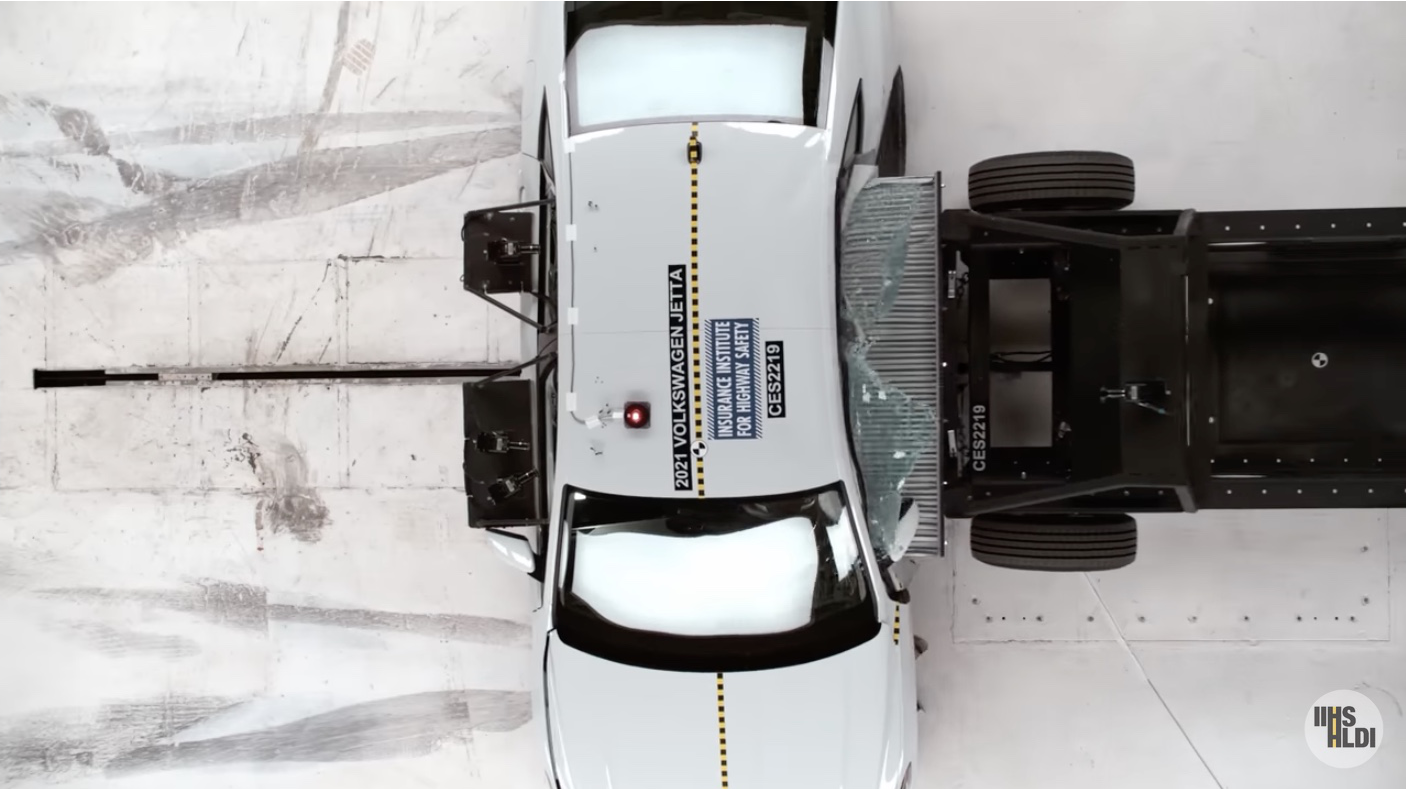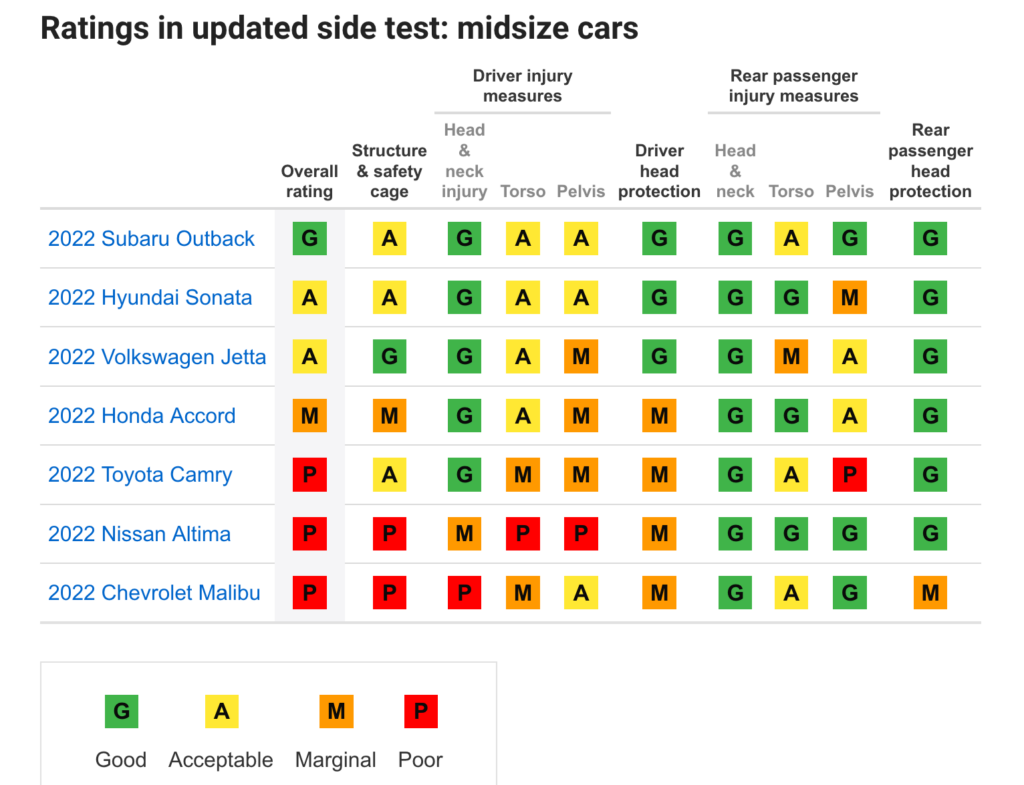Subaru Outback Aces New Side Impact Test; Others Not So Much

The Subaru Outback is the only midsize car to earn a good rating in an updated side impact test, with the Hyundai Sonata and Volkswagen Jetta scoring acceptable ratings out of the seven cars tested.
The new crash test was devised by the non-profit Insurance Institute for Highway Safety after research showed that many of the real-world side impacts that still account for nearly a quarter of passenger vehicle occupant fatalities are more severe than the original test anticipated.
Overall, this initial group of midsize cars did not perform as well as the first batches of small and midsize SUVs evaluated earlier. One reason could be their lower ride height.
“With vehicles that sit lower to the ground, the striking barrier hits higher on the door panel,” said IIHS President David Harkey. “That potentially puts sedans and wagons at a disadvantage in this evaluation but reflects what happens in a real-world crash when these vehicles are struck by a higher-riding pickup or SUV.”
Head-protecting airbags
The head-protecting airbags for the driver and rear passenger performed well in the Outback, Sonata and Jetta, contributing to a low risk of head and neck injuries for occupants in both seating positions. However, injury measures were somewhat elevated for the driver’s pelvis and rear passenger’s torso in the Jetta and the rear passenger’s pelvis in the Sonata.
The Honda Accord earns a marginal rating, and the Chevrolet Malibu, Nissan Altima and Toyota Camry earn poor ratings.

There was moderate intrusion of the B-pillar into the occupant compartment of the Accord. Injury measures for the driver’s pelvis were somewhat elevated, and the driver’s head moved downward past the side curtain airbag to contact the windowsill during the crash.
The Altima and Malibu showed substantial intrusion into the occupant compartment, but the safety cage of the Camry held up well. Injury measures indicated a high risk of torso and pelvis injuries for the driver in the Altima, a moderate risk of torso and pelvis injuries for the driver and high risk of pelvis injuries for the rear passenger in the Camry, and a high risk of head or neck injuries for the driver in the Malibu. In all three vehicles, the heads of either the driver or rear passenger dummy or both slipped below the side curtain airbag to contact the windowsill.
Updated side crash
The updated side crash test uses a heavier barrier traveling at a higher speed to simulate the striking vehicle. The new barrier weighs 4,200 pounds — close to the weight of today’s midsize SUVs — and strikes the test vehicle at 37 mph, compared with a 3,300-pound barrier traveling at 31 mph in the original evaluation.
For now, the updated test is not included in the IIHS award criteria. However, starting in 2023, a good or acceptable rating will be required for the lower-tier Top Safety Pick award and a good rating will be needed for the higher-tier Top Safety Pick+.
All seven of these vehicles earned good ratings in the original side test.
